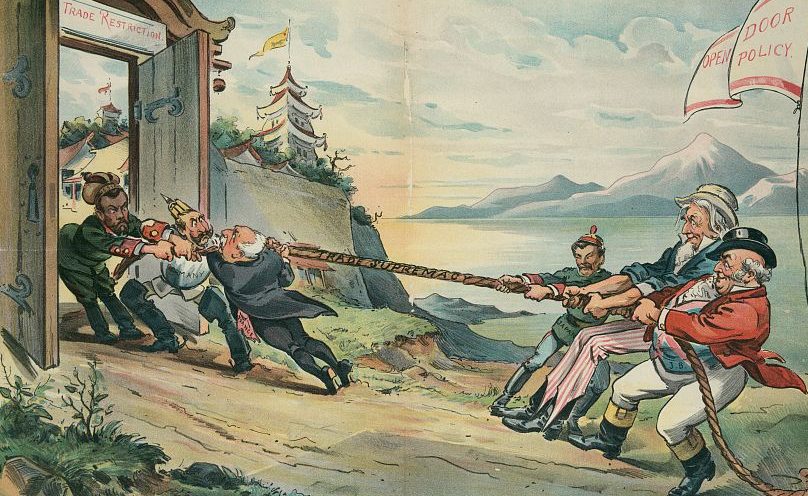Throughout history, trade has never been just about goods crossing borders……it has been about power.
From the Opium Wars in the 19th century, to U.S.–Japan trade tensions in the 1980s, to the Smoot-Hawley Tariff Act of 1930 that deepened the Great Depression, trade wars have always carried collateral damage. They don’t just punish governments; they seep into the homes of families, disrupt industries, and shape the destiny of nations.
Today, the same old battles wear new uniforms.
-
The United States is increasing tariffs, reshaping global supply chains almost overnight.
-
Visa costs are rising, forcing skilled workers, particularly from Asia and Africa, to rethink where they can live and work.
-
Boycotts against brands, products, or even entire nations have become common, often driven by social media sentiment.
-
Services and technologies are denied based on geography, cutting off entire regions from growth opportunities.
Trade has turned into a weapon. A weapon capable of destabilizing economies, industries, and livelihoods at massive scale. And unlike traditional wars, these battles are waged not with soldiers but with businessmen, policymakers, and boardrooms practicing their own version of The Art of War.
The Cascading Cost of Trade Wars
Every new tariff, boycott, or restriction creates a ripple effect:
-
Farmers lose markets for their produce.
-
Manufacturers lose access to raw materials.
-
Employees lose jobs when plants shut down.
-
Consumers pay higher prices for daily essentials.
The world has become so tightly interwoven that a single trade policy decision in Washington or Beijing can unsettle a farmer in Africa, a factory in India, or a start-up in Europe.
The Case for Independence
If this is the new world order, then leaders, whether of nations, organizations, or communities, Must rethink dependence. The old strategy of leaning heavily on a single partner, supplier, or market is no longer just risky; it is reckless.
What’s the alternative? Build independence.
- Strengthen local produce and raw material chains to secure basic needs.
- Develop unique, tradeable resources that create leverage in negotiations.
- Diversify partnerships across regions, industries, and domains to avoid concentration risk.
Take India as an example. It is not just a country. It is a subcontinent with immense natural wealth, cultural capital, and one of the world’s largest untapped consumer markets. Yet, for decades, both local businesses and foreign partners have underutilized this potential. Instead of relying on one global giant for survival, why not unlock the power within such vast resources?
Beyond Dependence, Towards Resilience
Trade will always be necessary—no country can or should close its borders entirely. But the key is not dependence, it is resilience.
When communities produce what they can locally, when industries innovate unique exports, and when nations spread their trade networks wide instead of narrow, trade ceases to be a weapon. It becomes what it was meant to be: a bridge.
The world is at a crossroads. Will trade continue as an instrument of coercion, or can we reclaim it as a pathway to shared growth?
The answer lies not in distant superpowers but in local leadership, leaders who refuse to rent dependence and instead choose to own resilience.


